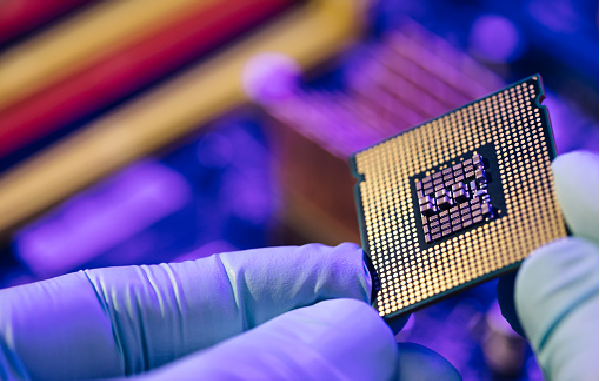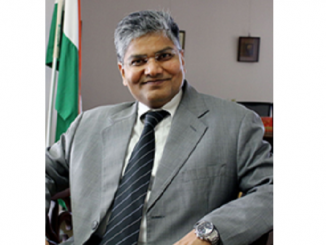
Apr 06:India is one of the leading centers for global semiconductor design companies. Most global semiconductor design companies have set up design R&D innovation centers in India owing to the exceptional semiconductor design talent pool making up to 20% of the world’s semiconductor design engineers and a high number of design Patents/ IPR registered in India.
Semiconductor supply chains are marked by geographical concentration with 75% of global capacity in East Asia. There are only a few companies that hold the cutting-edge fabrication technologies in the world and the capability to establish and operate semiconductor fabs based on advanced technologies. IDMs such as Samsung (South Korea), Intel (USA), SK Hynix (South Korea), and Foundries such as TSMC (Taiwan), Global Foundries (USA), and UMC (Taiwan) hold the majority of the market share for semiconductor fabrication. Such a concentration represents various risks to the global electronics and semiconductor value chains. Building Indian capabilities in semiconductor manufacturing is an imperative for industrial growth, digital sovereignty, technological leadership, national security, self-reliance, and for India’s goals to be a significant player in the global electronics and semiconductor value chains.
Government is very focused on its important objective of building the overall semiconductor ecosystem and ensuring that it, in in-turn catalyzes India’s rapidly expanding electronics manufacturing and innovation ecosystem. The vision of Atmanirbhar Bharat in electronics & semiconductors was given further momentum by the Union Cabinet, chaired by the Hon’ble Prime Minister, approving the Semicon India program with a total outlay of INR 76,000 crore for the development of semiconductor and display manufacturing ecosystem in our country. The program aims to provide financial support to companies investing in semiconductors, display manufacturing, and the design ecosystem. This will serve to pave the way for India’s growing presence in the global electronics value chains.
The following four schemes have been introduced under the aforesaid program:
- The scheme for setting up Semiconductor Fabs in India provides fiscal support to eligible applicants for setting up Semiconductor Fabs which is aimed at attracting large investments for setting up semiconductor wafer fabrication facilities in the country. Following fiscal support has been approved under the scheme:
- 28nm or Lower – Up to 50% of the Project Cost
- Above 28 nm to 45nm – Up to 40% of the Project Cost
- Above 45 nm to 65nm – Up to 30% of the Project Cost
- The scheme for setting up Display Fabs in India provides fiscal support to eligible applicants for setting up Display Fabs which is aimed at attracting large investments for setting up TFT LCD / AMOLED based display fabrication facilities in the country. The Scheme provides fiscal support of up to 50% of Project Costs subject to a ceiling of INR 12,000 crore per Fab.
- Scheme for setting up of Compound Semiconductors / Silicon Photonics / Sensors Fab and Semiconductor Assembly, Testing, Marking, and Packaging (ATMP) / OSAT facilities in India: The Scheme provides financial support of 30% of the Capital Expenditure to the eligible applicants for setting up of Compound Semiconductors / Silicon Photonics (SiPh) / Sensors (including MEMS) Fab and Semiconductor ATMP / OSAT facilities in India.
- Design Linked Incentive (DLI) Scheme offers financial incentives, design infrastructure support across various stages of development and deployment of semiconductor design for Integrated Circuits (ICs), Chipsets, System on Chips (SoCs), Systems & IP Cores, and semiconductor linked design. The scheme provides a “Product Design Linked Incentive” of up to 50% of the eligible expenditure subject to a ceiling of ₹15 Crore per application and a “Deployment Linked Incentive” of 6% to 4% of net sales turnover over 5 years subject to a ceiling of ₹30 Crore per application.
In addition to the above schemes, the Government has also approved the modernization of Semi-Conductor Laboratory (SCL), Mohali as a brownfield Fab.
In order to drive the long-term strategies for developing sustainable semiconductors and display ecosystem, a specialized and independent “India Semiconductor Mission (ISM)” has been set up. The India Semiconductor Mission will be led by global experts in the semiconductor and display industry. It will act as the nodal agency for efficient and smooth implementation of the schemes for setting up of Semiconductor and Display Fabs.
Under Semicon India Programme, Government has received 3 applications for setting up Semiconductor Fab units in the country. The applications received under the Semicon India Programme for manufacturing chips are under examination. Further, Semiconductors manufacturing is a very complex and technology-intensive sector with huge capital investment, high risk, long gestation and payback periods, and rapid changes in Technology which require sustained investments. Presently, India is at the formative stage of developing its semiconductor supply chain ecosystem. The manufacturing of semiconductor chips in semiconductor fab units will depend on the technology, capacity, and availability of the semiconductor supply chain ecosystem.
This information was given by the Minister of State for Electronics & Information Technology, Shri Rajeev Chandrasekhar in a written reply to a question in Lok Sabha today.
***
Disclaimer: We donot claim that the images used as part of the news published are always owned by us. From time to time, we use images sourced as part of news or any related images or representations. Kindly take a look at our image usage policy on how we select the image that are used as part of the news.


